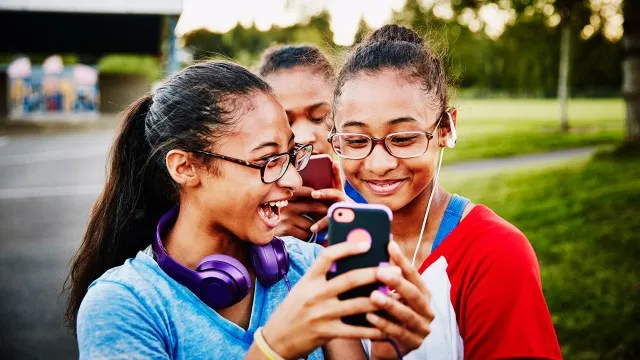Social media has become an inseparable part of daily life for teens and young adults, shaping how they communicate, express themselves, and perceive the world. Platforms like TikTok, Instagram, and Snapchat dominate the digital landscape and influence trends, behaviors, and self-image.
Understanding the latest trends among younger users is crucial as social media continues to evolve. This article explores the most prominent social media trends, from the rise of short-form content to privacy concerns, and the impact of these trends on mental health and behavior, providing insights into the digital habits of today’s youth.
Privacy Concerns and Burner Phones
Privacy is a growing concern among teens and young adults navigating the digital world. With increasing awareness of data breaches, targeted ads, and the constant tracking of online activity, many young users are becoming more cautious about their digital footprint. This shift has led to the rising use of burner phones, secondary devices used solely for social media or anonymous browsing.
Burner phones allow users to separate their social media presence from their primary devices, offering an extra layer of privacy and security. This trend reflects a broader skepticism of tech companies and the desire for more control over personal data. As privacy concerns grow, young people are seeking ways to protect themselves while still engaging in their favorite online platforms.
The Rise of Short-Form Content
Short-form content is taking the social media world by storm, especially among teens and young adults. Platforms like TikTok, Instagram Reels, and YouTube Shorts offer quick, engaging videos that capture attention in seconds. These bite-sized pieces of content are designed for fast consumption, catering to shorter attention spans and the on-the-go nature of modern life.
For many young users, short-form videos provide a fun and creative outlet, allowing them to express themselves, share trends, and instantly connect with others. The format’s popularity is driven by its simplicity and the ease with which users can create, watch, and share content.
From dance challenges to life hacks, these videos often go viral and spread rapidly across the internet. As a result, short-form content is redefining how younger generations consume media, favoring quick, visually appealing snippets over longer, more traditional formats.
Influencer Culture and Peer Pressure
Influencer culture is at the heart of social media. Popular influencers with millions of followers often set the standard for what’s “in” and “cool,” driving a culture of comparison and peer pressure. Young users may feel compelled to emulate influencers’ looks, behaviors, and purchases to fit in or gain social validation.
This constant exposure to curated and often unrealistic portrayals of life can create a sense of inadequacy, pushing teens to keep up with trends or engage in behaviors they might otherwise avoid. The pressure to maintain a certain image online can lead to anxiety, low self-esteem, and an unhealthy focus on likes and shares as measures of self-worth, making influencer culture a double-edged sword.
Mental Health Impacts of Social Media
Social media’s impact on mental health is a growing concern, especially among teens and young adults who are more susceptible to its effects. Constant exposure to idealized images, the pressure to appear perfect, and the addictive nature of social media can contribute to anxiety, depression, and other mental health issues.
The fear of missing out (FOMO) can lead to compulsive checking of social media feeds, disrupting sleep and real-life interactions. Also, cyberbullying and negative comments can further harm self-esteem, making social media a breeding ground for emotional stress. However, it’s not all negative; these platforms also offer support communities, resources, and spaces for self-expression.
The Popularity of Anonymous Platforms
Anonymous platforms like YikYak, Whisper, and Reddit have surged in popularity among teens and young adults, providing a space where users can express themselves without the pressure of personal branding or judgment. These platforms allow individuals to share thoughts, ask questions, and engage in discussions without revealing their identities.
For young users, the appeal lies in being candid without the repercussions often associated with traditional social media. That being said, this anonymity can also lead to negative behaviors, such as cyberbullying and the spread of misinformation. While these platforms offer a break from the curated nature of mainstream social media, they also highlight the need for responsible use to ensure a safe and supportive online environment.
Social Media Is Here To Stay
Social media trends among teens and young adults constantly evolve, reflecting their desires for connection, privacy, and self-expression. From the rise of burner phones to the impact of influencer culture, these trends highlight the complexities of navigating the digital world. As social media continues to shape youth culture, mindful engagement remains key to a healthy online experience.
